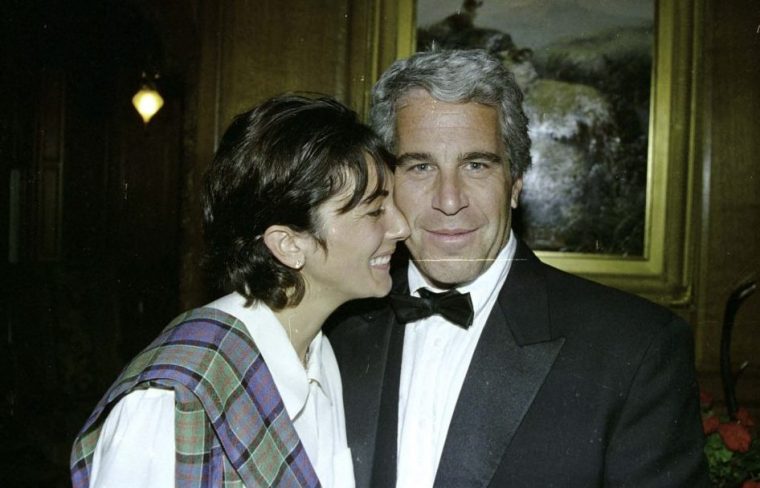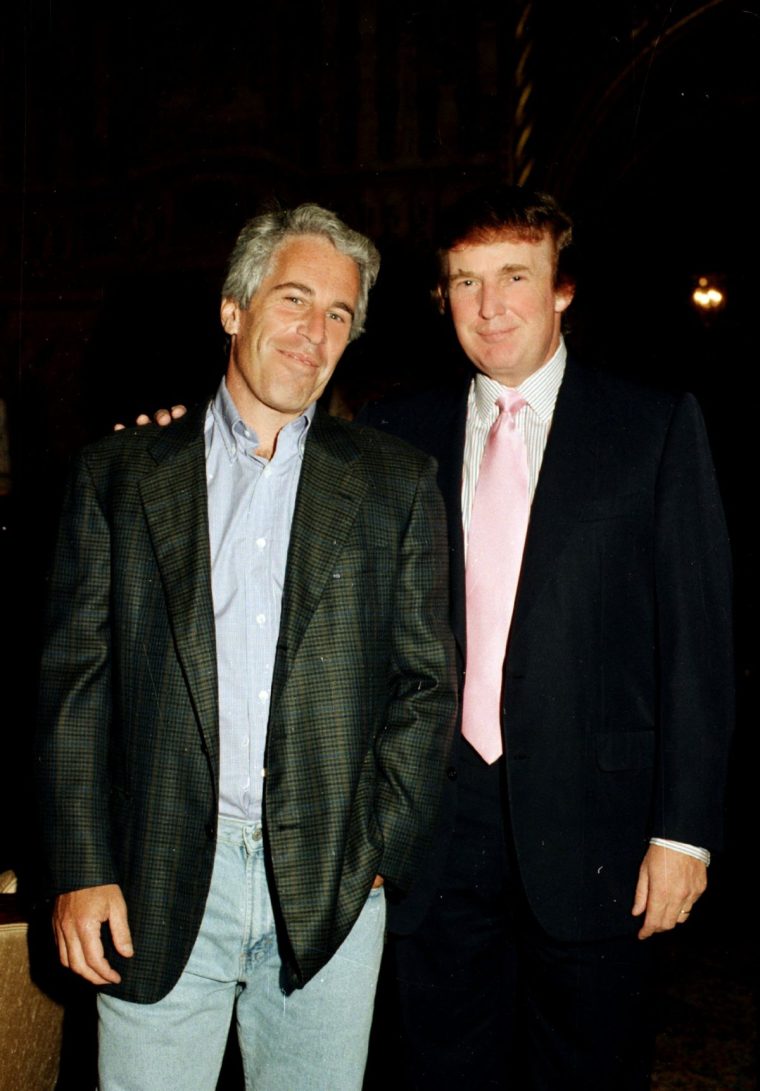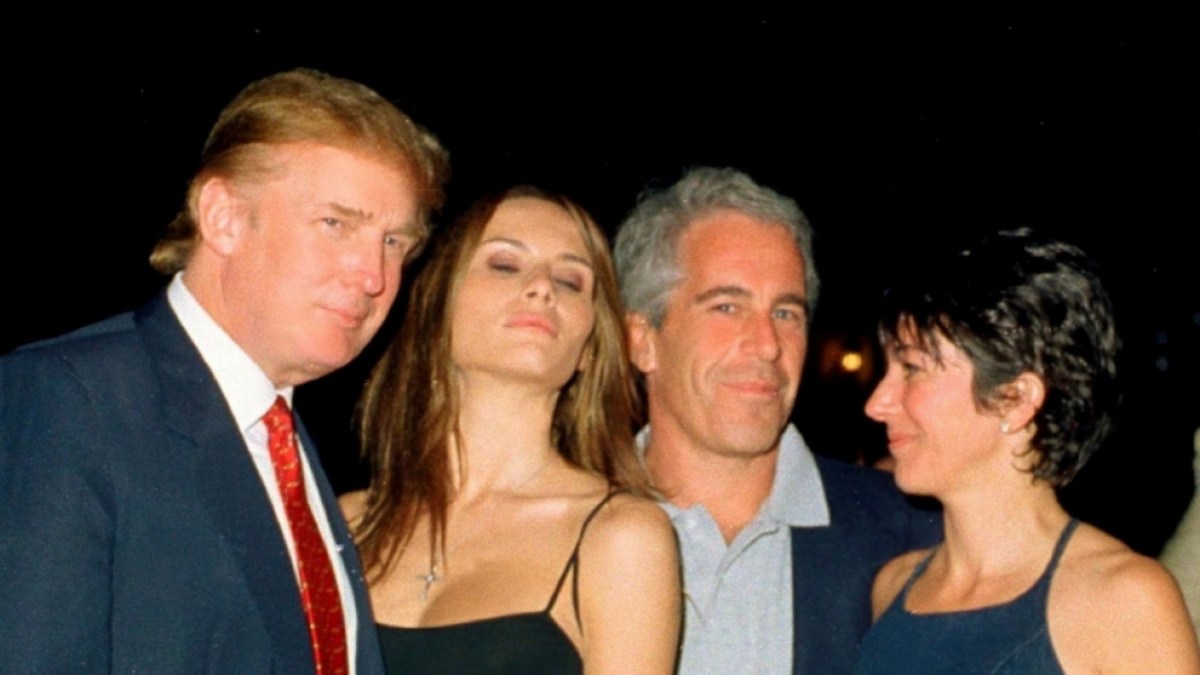The US President is setting himself up for a fall in his legal fight against the newspaper, experts believe
Donald Trump is “setting himself up” for a reputational fall in his legal fight against The Wall Street Journal, experts have told The i Paper.
Trump sued the newspaper and its owners, including Rupert Murdoch on Friday, seeking at least $10bn (£7.45bn) on each of two defamation counts after the Journal wrote an article about a “bawdy” letter he allegedly sent to the financier and child sex offender Jeffrey Epstein for his 50th birthday.
The letter allegedly included a drawing of a nude woman and a message reading: “May every day be another wonderful secret”.
Trump’s lawsuit has done little to prevent the negative publicity he is receiving around the scandal from spreading, including from within his own political camp.
Media lawyers explained the different ways in which his lawsuit could unfold, claiming the US President’s legal move is likely to backfire in any scenario.
Trump’s case is dismissed
Due to the case’s lack of legal standing, Mark Stephens, a high-profile consultant with the legal firm Howard Kennedy, said he “would be gobsmacked if The Wall Street Journal did not file a suit to have the case dismissed”.
Trump’s legal team will have to contend with a “very high legal bar”, said Stephens, who has previously represented Julian Assange, the founder of WikiLeaks.
“The President is the public figure of all public figures, meaning [prosecutors] will have to show actual malice, meaning Trump has to show Wall Street Journal’s reporting was not only wrong, but that it deliberately reportedly something other than the truth.”
Steve Kuncewicz, a media lawyer at Berrymans Lace Mawer, suggested the case was less an attempt to take a legitimate legal fight to the newspaper and more to do with politics.
“This is an exercise of releasing everything but the Epstein files, so Trump can tell the base he is doing something, without actually getting to the heart of the issue,” he said.
 Imprisoned British socialite Ghislaine Maxwell with Jeffrey Epstein (Photo: US district court for the southern district of New York/AFP)
Imprisoned British socialite Ghislaine Maxwell with Jeffrey Epstein (Photo: US district court for the southern district of New York/AFP)
He added that the US Justice Department asking Ghislaine Maxwell, Epstein’s jailed former girlfriend, on Tuesday if she will speak to prosecutors is an example of political style outweighing legal substance.
Maxwell would have already disclosed any knowledge she may have had of Trump’s relationship with Epstein in her original trial, Kuncewicz claimed.
Stephens agreed the whole case against the Journal had more of an “assemblage to a dead cat on a table” than anything else.
While Trump filed the case in southern Florida, where he may have expected a judge sympathetic to his views would oversee the case, it emerged on Monday that Darrin Gayles will in fact take on the lawsuit – the first openly gay black man appointed to the federal bench by Barack Obama.
More evidence is made public before the case is settled
A summary judgment from the judge can be expected in the autumn, Stephens estimated, when it could be determined if the case is thrown out.
If a request to dismiss the lawsuit is rejected, it will go to discovery, meaning The Wall Street Journal and Trump can seek evidence from the other party, which could help their case.
“I would be very surprised if after any summary judgment notion there is not a very strong series of subpoenas to all sorts of people, such as New York district attorneys, the FBI and [Attorney General] Pam Bondi,” Stephens said.
“They will go after people who have tapes and recordings with interviews. The Wall Street Journal will do everything it can to defend itself.”
This would allow publicity around Trump’s potentially damaging links with Epstein to fester. “Reputationally, Trump is setting himself up for a fall. Essentially, you are providing news pegs which people can lawfully report on,” added Stephens.
 Jeffrey Epstein and then-real estate developer Donald Trump in 1997 (Photo: Davidoff Studios/Getty)
Jeffrey Epstein and then-real estate developer Donald Trump in 1997 (Photo: Davidoff Studios/Getty)
Kuncewicz believes it is “fifty-fifty” whether or not it will go all the way to a trial or a settlement, as opposed to the case being dismissed.
“Trump, despite the whole weaponisation of justice, has a history of bowing out before he needs to give evidence,” Kuncewicz added.
If there is a settlement, Stephens believes it will have far lower sum than the $20bn (£14.9bn) Trump is asking for.
Trump gives evidence in a trial
Stephens said there is a strong chance The Wall Street Journal will want to take the case to trial after the discovery phase concludes. “Why would the WSJ settle if the case is not robust?” he said.
In this case, the newspaper will “absolutely” want to hear evidence from and depose Trump, Kuncewicz said.
“And Trump is on the record saying he is looking forward to Murdoch being deposed,” Kuncewicz added.
Throughout the trial, other news publications are likely to “rally around The Wall Street Journal”, Stephens said, “as they will see this case as an existential threat to freedom of expression”.
If the case is not thrown out, it will last “at least a few years”, Kuncewicz claimed. “I could definitely see The Wall Street Journal digging their heels in.”
If Trump does win, he is likely to have to remove from the lawsuit Murdoch and Robert Thomson, the chairman and CEO of News Corp – the company of which The Wall Street Journal is a division.
“Then [Trump] has lost half his case… that is not positive PR,” said Stephens
If Trump loses it could help prevent a “chilling effect” that is continuing to spread throughout the mainstream media industry in the US, following CBS’s parent company, Paramount Global, agreeing to pay Trump $16m (£11.9m) to settle a legal dispute in July.
Both lawyers pointed out the irony of The Wall Street Journal possibly being the first big news corporation to fight and beat Trump during his second term, considering the newspaper’s connection to Murdoch, the founder of Fox News – which is “carrying Trump’s water”, according to Kuncewicz.
“Who on earth thought Murdoch could be the saviour of US democracy?” Stephens wondered.
“Trump is picking a fight not just with The Wall Street Journal, but the entire Murdoch empire. I am not convinced there is much wisdom in that.”
